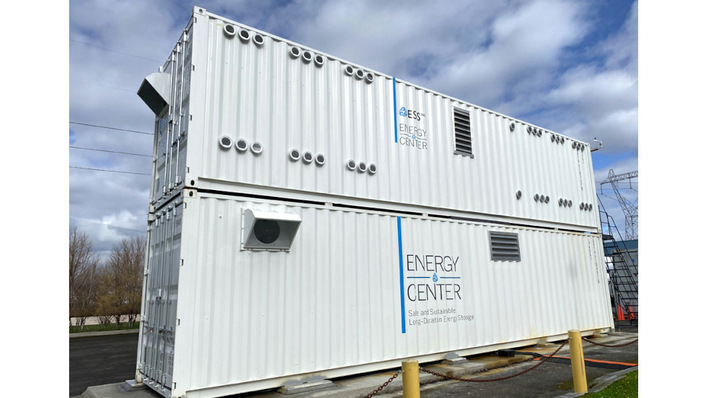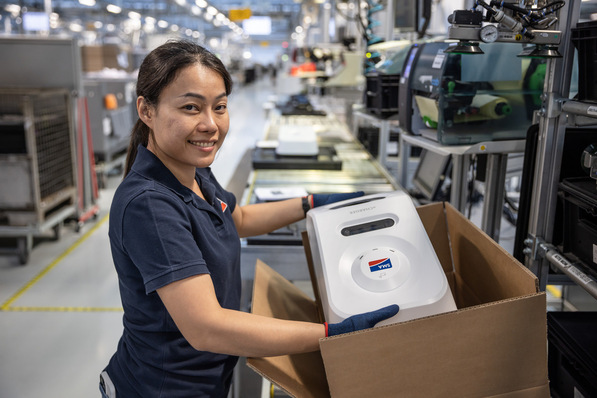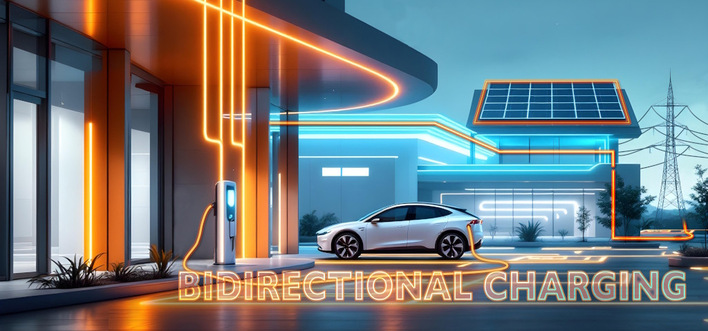The Power2Drive Award honours technologies and business models that help make our mobility more sustainable – now and in the future. This includes products and services for the electromobility and charging infrastructure sectors, bidirectional charging solutions, mobility services and software solutions.
See also: Fronius invites you to “Join for more energy”
A strong trend in the industry is the optimization of PV-powered charging stations in combination with AC wallboxes using single- and three-phase charging, with several manufacturers offering new products in this field. Software solutions for planning, design, distribution and aggregators of electric charging infrastructure are broadening the scope. This year, manufacturers and attendees are also looking at special charging stations for light electric vehicles such as e-scooters or e-bikes in public spaces, many of which feature integrated solar modules.
Also interesting: The Netherlands are ahead of the pack in the number of charging points
The Power2Drive Award will make its debut: The prize will be awarded in room 1 on June 13 at 6 pm at the International Congress Center München (ICM), along with The smarter E Award, the Intersolar Award, the ees Award as well as the EM-Power Award, which will also be presented for the first time – all under the umbrella of The smarter E Europe.
The Power2Drive Award 2023 finalists
ADS-TEC Energy (Germany): ChargePost
This compact charging station has a footprint of less than two square meters and consists of a backup battery with a capacity of at least 200 kilowatt hours, power electronics, a cooling system and one or two charging points with a combined output of 300 kilowatt. Two optional 75-inch displays that can be used for advertisements to generate additional income. Even at significantly lower grid-connected loads, ChargePost is able to provide the backup battery storage with high charging power for electric cars. What’s more, ChargePost can be used as a storage device in a photovoltaic system.
Bender (Germany): ICC1324 Charge Controller for AC Charging
The ICC1324 charge controller combines several functions on one printed circuit board: an integrated power supply, safety features, power-line communication (PLC) and a charge controller software that can be updated. The charge controller is compatible with backends through Open Charge Point Protocol (OCPP) 1.5 and 1.6 (JSON and SOAP) and supports the implementation of plug & charge. It has Wi-Fi capability, a 4G modem and two Ethernet ports to support key communication protocols. This includes dynamic load management (DLM), which allows up to 250 vehicles to be charged simultaneously. The compact design of the ICC1324 allows operators of public, semi-private and private charging stations to use cutting-edge and future-oriented charging stations without having to develop their own charge controller.
Hive Power (Switzerland): FLEXO Smart Charge
Fleet managers and original equipment manufacturers (OEMs) of electric vehicles can use this Software-as-a-Service platform (SaaS platform) for Vehicle2Grid marketing and smart charging. The platform utilizes machine learning and optimization methods to bundle electric vehicles, market them on energy markets and maximize yields. The software solution is offered as a white label app and hosted in a cloud infrastructure. With a focus on ease of use and customer centricity, Hive Power enables end customers to use an application that monitors the profitability of marketing their vehicle. The platform is hardware independent, so there is no need to install additional devices. Thanks to optimized marketing, Hive Power’s FLEXO Smart Charge increases the margin and reduces the operating costs of a V2G compatible e-vehicle.
ITK Engineering (Germany): Smart Charging Infrastructure Architect (SCIA)
This SaaS tool can be used for efficient and customer-centric planning and siting of public electric vehicle charging infrastructure. It is unique in that it takes a bottom-up approach, considering the mobility behavior of end users by deriving the behavior of the entire system from a specific simulation of the power grid. With SCIA, users can compare different deployment options based on multiple goals, taking into account future developments. Furthermore, SCIA helps analyze how bidirectional charging affects the power grid. Simulations and the resulting decisions are able to reduce the need for costly trial-and-error installations of charging points The detailed simulation of charging increases safety and minimizes costs.
paXos Consulting & Engineering (Germany): Charging Plug Cool-Load Megawatt (CLMW)
The novel patented fast-charging connector with active cooling is capable of transferring more than one megawatt (up to 12 megawatts max.) of charging power with 99.78 percent efficiency. Due to its uniquely large contact surface, the plug’s ring structure ensures low contact resistance and allows direct cooling of the contact rings. The charging cable is very flexible, and the plug can be inserted into the charging socket without force and at any angle. The CLMW’s excellent efficiency saves energy and keeps cooling costs down while allowing for shorter charging times. This technology is an interesting option for the commercial vehicle, marine, mining and aerospace industries.
SMA Solar Technology (Germany): SMA eCharger
SMA’s eCharger wallbox that has been optimized for solar power charging. The charging station is able to do without standardized support rails. Instead, it features a single printed circuit board with both communication and power components, resulting in cost advantages, simple and sustainable production, and a simplified calibration process. The wallbox is capable of bidirectional charging and compatible with the ISO 15118 vehicle to grid communication interface for road vehicles, and therefore also with plug & charge. A self-learning algorithm helps optimized the user’s self-consumption. The SMA eCharger supports the Open Charge Point Protocol (OCPP) for a backend connection, enabling dynamic load management. New features can be added via over-the-air updates.
SolarPaint by Apollo Power (Israel): Seamless Integration of Apollo Solar Cells in Automotive Exterior Parts
These photovoltaic cells can be integrated into the fiber-reinforced plastic components of a vehicle’s chassis. They are produced through injection molding, thermoplastic manufacturing processes, or high-pressure resin transfer molding (HP-RTM) processes. The solar cells are integrated into the chassis without altering the basic production processes and their low weight (1.8 kilograms per square meter) means that they do not create a weight disadvantage. The energy harvested by the solar cells reduces the vehicle’s consumption.
Solum Photovoltaic Innovation (Spain): Helios – Solar Charging Station for Personal Mobility Vehicles
Helios is a charging station for e-bikes, e-scooters and other light electric vehicles. The charging stations are supplied with energy via solar modules that are embedded in the ground near the station, which means that Helios does not depend on a grid connection and can be placed anywhere. An integrated battery stores the solar energy. Depending on the charging station’s configuration, between six and 16 light vehicles can be supplied with electricity. An app-controlled security system protects the vehicles from theft during the charging process.
Technagon (Germany): Technagon Charging Stations W40, P40, P45 & P80
With the W40, P40, P45 and P80 models, Technagon has introduced a new series of AC charging stations for wallboxes and charging columns with two charging points for 22 kilowatts charging power each. The charging stations for public and semi-private use are compliant with calibration law. Its so-called charging module distinguishes Technagon’s charging stations from others. The standard systems include all components that are subject to calibration law. If a charging module is defective, it can simply be replaced without the need to re-register the charging station under calibration law.
TWAICE Technologies (Germany): TWAICE Mobility In-life Battery Health Analytics
With this SaaS platform, vehicle manufacturers can improve the reliability, continuity and accuracy of a vehicle’s battery aging analysis. The software provides reliable insights into the batteries’ state of health (SoH) during standard operation. It allows the early detection of defects, reduces the need for complex laboratory and field tests, and avoids warranty claims as well as premature battery replacements. The analysis software is the result of more than six years of academic research, involves a number of patents and uses innovative AI algorithms. TWAICE guarantees a 2 percent measuring accuracy for the state of health analysis. It is easily scalable and can be integrated with existing systems via programming interfaces using a cloud-based SaaS architecture. (mfo)








